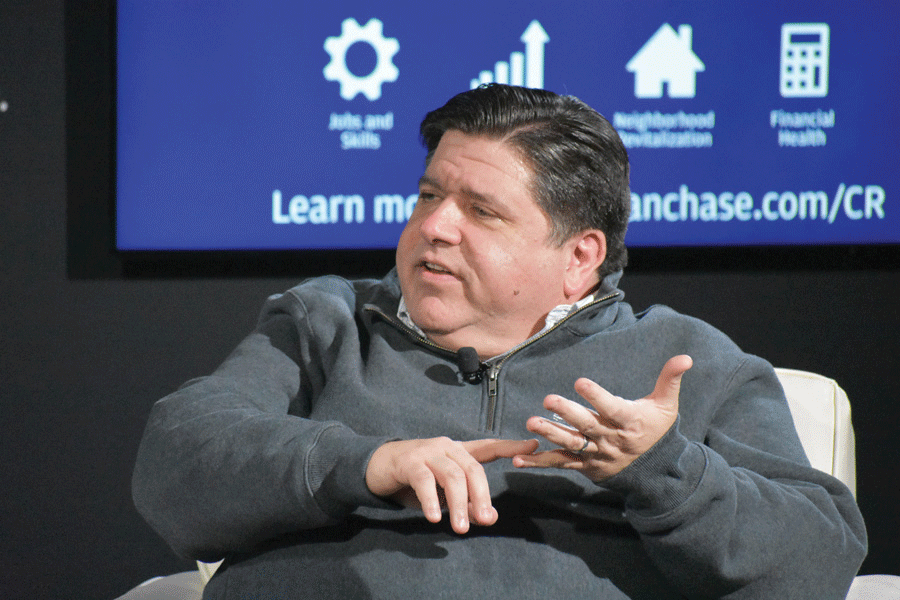Evanston residents weigh in on making Illinois primary first in the nation
Daily file photo by Emma Edmund
Gov. J.B. Pritzker. Pritzker said in a Feb. 3 tweet that the Illinois primary should replace the Iowa caucus as the nation’s first presidential nominating contest.
February 23, 2020
Evanston residents are split on whether the Illinois primary should replace the Iowa caucus as the nation’s first presidential nominating contest, a proposal Governor J.B. Pritzker pushed for in a Feb. 3 tweet.
“If you’re looking for a state whose people represent the diversity of America, look no further than Illinois,” Pritzker tweeted, posting before technical problems delayed the Iowa caucus results. “It’s time for the most representative state in the country to be the first in the nation.”
Pritzker’s Chief of Staff Anne Caprara told the Chicago Sun-Times that the governor will push to move up the Illinois primary when the Democratic National Committee next meets to discuss the 2024 primary voting structure. DNC Chair Tom Perez said on Feb. 12 that the committee should reexamine primary order and consider caucus reform to reflect a more diverse voting base. New Hampshire state law currently requires that its primary is the earliest.
Some voters and experts say Iowa’s homogenous population — 90 percent of residents are white — shouldn’t set the tone for a nationwide race. According to data from the U.S. Census Bureau, Illinois’ population is 61 percent white, 17.4 percent Hispanic or Latino, 14.6 percent black and 5.9 percent Asian — however, most of the state’s non-white population is centered in the Chicagoland area.
The Democratic Party of Evanston Issues Committee Co-chair Sue Calder said moving up the Illinois primary would give the state a greater say in determining the nomination’s outcome. Illinois’ primary is on March 17, 43 days after the Iowa caucus.
“We’d get a better say in who’s nominated,” Calder said. “Right now, by the time we get around to voting, it’s pretty well-decided.”
Americans have long viewed the Iowa caucus as an early indication of the potential party nominee. Since the caucuses began in 1972, there have been 10 Democratic and eight Republican caucus winners, and more than half of those winners secured their party’s nomination. Three have been elected president.
Evanston Township GOP Committeeman Blair Garber said Illinois, which he called “the most corrupt state in the union,” shouldn’t have more power in influencing the course of the presidential election.
“You should be locked up if you think (House Speaker) Michael Madigan and the Chicago machine should be picking nominees for dog catcher, let alone president of the United States,” Garber said. “Illinois really needs to concentrate on getting its own House in order before taking a bigger part on the national stage.”
Though the Illinois government has a reputation of being corrupt, politicians like Madigan are not part of the primary or caucus process — rather, party delegates select the Democratic presidential nominee at the Democratic National Convention.
Garber added that later nominating contests in other states nullify “any effect” Iowa’s demographics have on caucus results. Mayor Lori Lightfoot, however, told the Chicago Sun-Times earlier this month that the Democratic party should “give serious consideration to starting with a state that’s diverse.”
Calder echoed Lightfoot’s message.
“Iowa just doesn’t represent the United States,” Calder said. “We need a community with more diversity in it: age-wise, economic, racial, everything.”
Email: [email protected]
Twitter: @herscowitz
Related Stories:
– Evanston community members analyze impacts of endorsements on Democratic primary
– Evanston Democrats contribute to campaigns for 2020 primary












